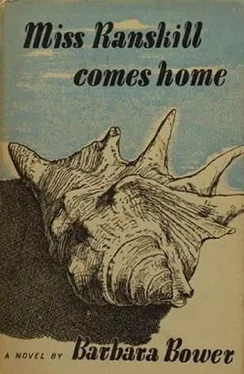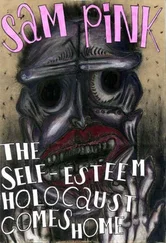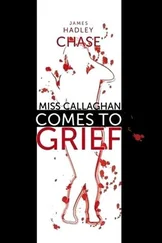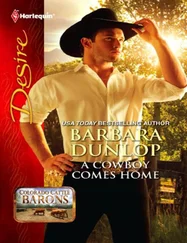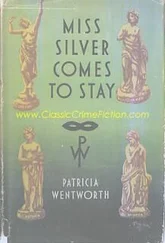But what went ye out for to see? But what went ye out for to see?
The engine chugged out the tune insistently and a loose button on the sleeve of the woman opposite joggled on its thread in rhythm. But what went ye out for to see? But what went ye out for to see?
Green and gold willows edged a stream. But what went ye out for to see? A reed shaken with the wind?
A re-eed shaken with the wi-ind, a re-eed shaken with the wi-ind . The chant of the engine was so clear to Miss Ranskill that she felt the other occupants of the carriage must interpret it too.
Ten days ago she had shuffled away the broken glass below Marjorie’s spare room window, had looked through the empty frames to see Lucy Brown running hatless and bare-legged down the path on her way to a wedding. Before that, the girl had talked to her for a few minutes.
‘Rex says you know about us . Nobody else must till afterwards. Rex is being awfully sweet about it. He says he likes me better in these things. Mummy would be horrified. She’d always planned a white wedding and never in May either. But you can’t wait for June in war-time when – when we may only have one week of May ever – for all our lives.’ The goldeny eyes had shown fear for a second time. ‘Rex doesn’t think about what – what might happen. I don’t think he’s ever thought he mightn’t be lucky. Boys don’t when they’re that age: it’s only the women who know. So we laugh a lot and I don’t think he ever guesses.’
A re-eed shaken with the wi-ind , chugged the engine, But what went ye out for to see?
Now the carriage window framed a seascape and then a tangle of barbed wire made Teignmouth beach ugly. The red rocks of Dawlish had kept their shape and the waves were scudding inland. Miss Ranskill remembered journeys taken to the West Country as a child, her first sight of the sea and the thought that the waves were hurrying inland to cool the hot tired wheels of the train so that it could run faster to the land of buckets and spades, sandy buns, jelly-fish and seaside lodgings.
The label on the kittens’ basket flapped in the salty breeze. There had been trouble about the kittens. The clank of a bucket-handle on the morning after the air-raid had reminded Miss Ranskill of a promise she had made in the cellar.
‘Oh! well,’ Marjorie had looked cross and tired. ‘Oh, well, I suppose if you promised Cecil, we’ll have to keep one. I suppose we shall get a lot of mice from the bombed houses. All the same–’
‘Can I draown the kittens?’ the request came from Cecil, ‘lemme draown them!’
‘There you see, he doesn’t want a kitten at all. No, Cecil, nice little boys don’t drown kittens. Your mother can do it properly. You’d better do it now, Mrs Bostock, but I suppose you’d better keep one or the cat will be ill.’
‘But, Marjorie, I didn’t promise Cecil.’
‘I thought you said you did.’
‘I promised,’ and here Miss Ranskill hesitated because it was quite impossible to say in the presence of Mrs Bostock, ‘I promised the cat.’
She did not feel sure that, even to one with as high a sense of honour as Marjorie, a promise made to a cat would count. Anyway, it would sound idiotic, and was unreasonable. She would never be able to explain the instinct that had forced her to guarantee cathood for three blind kittens.
‘Oh! well, I suppose Rex wants them for mascots or something. If you promised him, we’d better keep them. They’ll have to stay where they are though. You know we’ve got to go to a hotel for at least a fortnight while the windows and things are repaired.’
Later, feeling guilty because she was using part of the money lent by Marjorie, Miss Ranskill had bought a basket, big enough for the cat and her unweaned kittens.
The days that had wrought such a change in them had altered Miss Ranskill too, and brought her knowledge.
She was now recognised as a citizen and had an identity card to prove her right to exist. She had three ration books, one for clothes, one for food, and a third that enabled her to buy three-quarters of a pound of sweets each month.
But what went ye out for to see? A reed shaken with the wind or three ration books?
She had an identity disc too – a parting present from Marjorie, who had delivered a speech when she gave it.
‘You won’t think me morbid or anything, will you, old thing? But honestly it’s the most practical present I could think of. If you should cop it in a blitz, it would save an awful lot of fag to the people who’d dig you out. I mean, nowadays when time’s so precious one really oughtn’t to go on giving bother after one’s dead. Besides, if there should be an invasion, and I honestly hope, I mean, I think there may be one, it might save you being shovelled into a Hun grave. Because, after all, there’d be some women among the invaders, nurses and things. Besides, there’d probably only be odd bits of you left and a few scraps of clothes. Honestly, I can’t think of anything more ghastly than being buried with Huns – enough to make you turn in your grave, if you’d anything left to turn, I mean. And, I say, old thing, I’ve had the school motto engraved on the back of the identity disc to make a sort of link between us.’
The patch of her wrist that lay underneath the identity disc began to itch a little and she scratched it, rubbing out traces of the embossed legend, Honour before Honours .
‘Anyway,’ she thought, ‘if I am blitzed and am due for a George Medal, they won’t bother to give it to me if they read the school motto, and they won’t think I’ve been looting shop- windows either.’
For by now Miss Ranskill knew a little about the war, just enough to keep her as quiet and wary as the occasional rider of a hired hack should be, if ever he were daring enough to allow himself to be shown round a Newmarket training-stable. She knew England had won the Battle of North Africa, that it was no longer ‘done’ to bewail Communism, that the Government Evacuation Scheme had been a failure, but that it had laid bare the most appalling pocks in our civilisation. She knew what ‘V’ stood for, and what ARP meant. She knew that it was smart to be shabby, and that it was also rather clever to turn coloured linen bedspreads into dresses and to imagine that the Government didn’t know. She knew that Lord Woolton ruled flesh, fowls and a few good red herrings. She knew just as much about the Battle of Britain as little Wilhelmine had known of Blenheim, but had learned to be as loyal as old Caspar to Marlborough’s successor.
Yet, in spite of identity card and disc, three ration books, a third-class ticket to Hampshire, a suitcase, a collection of carpentry tools, three kittens and a cat, Miss Ranskill was a woman whose will had been passed for probate three years ago.
Marjorie had been generous and had lent money for clothes and the journey and at least a week’s future expenses.
If, retaining her present knowledge, she could put back the clock, return to the island and (her heart lifted at the thought) talk to the Carpenter, what would she have to tell him? There they had struggled for food against the wiles of that food and the elements. Here, they must submit to the dictates of bureaucracy before being allowed to buy food and clothing. There the dying of the beacon fire had been a tragedy: here the showing of a light by night was a crime. On the island two people had done the work of two. In England a thousand might do the work of four thousand or ten do the work of two. On the island, they had obeyed the rules they had made, in this other island, in spite of the need for weight-pulling, in spite of the equal need to win the war, thousands were employed to see that the rest did not cheat. What would the Carpenter make of that?
Читать дальше
